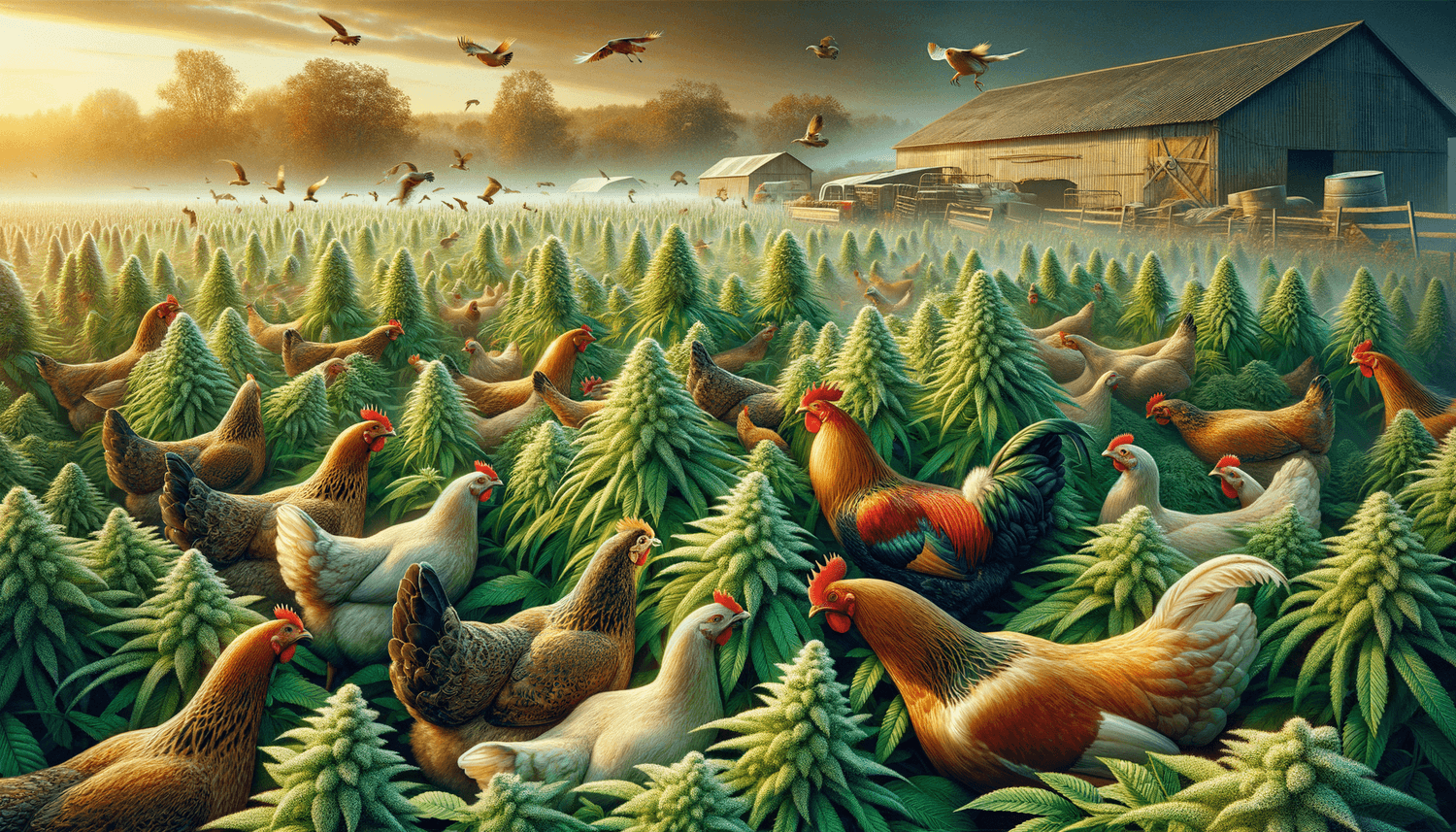Welcome to our cluck-worthy blog, where today we’re going to tackle a burning question at the top of every backyard chicken enthusiast’s mind: Can chickens eat pigweed? Get ready to dive into the scrumptious world of foraging as we explore whether our feathered friends can safely chow down on this common weed. Along the way, we’ll cover essential information such as ensuring a balanced diet, the potential benefits and risks of pigweed, its nutritional value, and how to serve up this culinary delight to satisfy even the pickiest of peckers. So let’s flap straight into it and hitch an informative ride into the wonderful world of backyard chicken cuisine!
Can chickens eat pigweed?
Yes, chickens can eat pigweed, and it is safe for them to do so when consumed in moderation. Pigweed is a nutritious plant for chickens, providing vitamins and minerals that support their overall health. However, it is essential to offer a balanced diet, which includes a variety of other plants, seeds and grains, to ensure your chickens receive all the necessary nutrients for optimal health.
A balanced diet for your backyard chickens
Just like us human folk, chickens require a balanced diet to maintain optimal health and wellbeing. Central to their nutritional needs is a high-quality chicken feed, which should make up the bulk of their diet – around 80-90% to be exact. Chicken feed provides the essential nutrients, vitamins, and minerals needed for them to thrive, ensuring they lead a happy, contented life clucking around your backyard.
But every chicken deserves a little treat now and then! In addition to their chicken feed, the remaining 10-20% of a chicken’s diet can include tasty tidbits like fruits and vegetables. These extras not only add variety and enjoyment, but can also offer additional health benefits for your backyard flock. Just remember to keep treats in moderation and always ensure that their core nutritional needs are being met through their daily chicken feed intake.
Nutritional value of pigweed for chickens.
Pigweed boasts an impressive nutritional profile that makes it a valuable addition to your chickens’ diet. This common weed is rich in crucial vitamins and minerals that contribute to the overall health of your flock. Specifically, it contains generous amounts of vitamins A, C, and K, which play vital roles in maintaining good vision, immune function, as well as supporting blood clotting and bone health in chickens.
Furthermore, pigweed also provides essential minerals, including calcium, iron, and potassium. Calcium is particularly important for laying hens, as it helps with strong eggshell formation, while iron assists in oxygen transport and overall growth. Potassium keeps your chickens’ muscles and nerves functioning properly, ensuring the daily backyard activities of your chickens run smoothly.
Besides vitamins and minerals, pigweed is a great source of hydration for your chickens, as it contains a high water content. This additional hydration can be particularly beneficial during hot summer months, helping to keep your chickens cool and preventing heat stress. Although pigweed should not replace their primary source of water, it does contribute to their overall hydration needs. So, with its myriad of nutritional benefits, pigweed can safely complement the diets of your backyard chickens when offered in moderation.
Nutrition table of pigweed for chickens.
| Information | Description |
|---|---|
| Nutritional Value | Rich in vitamins A, C, and K, as well as minerals such as calcium, iron, and potassium. |
| Suggested Serving Size | Fistful-sized portions, making up no more than 10-20% of the chickens’ overall diet. |
| Safe Feeding Practices | Offer pigweed in moderation, in combination with high-quality chicken feed and a variety of other plants, seeds, and grains. |
| Preparation | Rinse pigweed thoroughly, remove any debris, and chop into bite-sized pieces for easy consumption. |
| Potential Risks | Oxalic acid content can cause issues when consumed in excessive quantities, but moderation negates the risk. |
| Hydration | High water content in pigweed helps with hydration, especially during hot summer months. |
| Digestion | Pigweed, as part of a balanced diet, is easily digestible and can aid in maintaining a healthy gut flora. |
| Seasonal Availability | Pigweed is widely available and can be found throughout most of the year, depending on the region. |
| Other Benefits | Supplementing your chickens’ diet with pigweed can support their overall health in addition to contributing towards the production of higher-quality eggs. |
Identifying pigweed
Before you start serving pigweed to your backyard chickens, it’s essential to accurately identify the plant to ensure you’re not unintentionally providing them with a potentially toxic substitute. Pigweed, or Amaranthus, is generally characterized by its green leaves and red, purple, or green stems. These plants grow abundantly in gardens or disturbed soils and can reach heights of two to five feet. However, consult a local plant expert or consult plant identification resources if you’re uncertain, as proper identification is crucial for the safety of your chickens.
Free-ranging and pigweed
If you allow your chickens to free-range in your backyard or garden, chances are they’ve already encountered pigweed and might be naturally foraging on it. Encouraging this natural behavior can actually help you in controlling the growth of this weed while providing a nutritious snack for your flock. It’s a win-win situation for you and your cluckers!
Introducing pigweed into their diet
When first introducing pigweed into your chickens’ diet, it’s essential to start small and monitor their reaction. Some chickens might be hesitant at first, but with time, they’ll likely begin enjoying this new addition to their menu. Keep an eye on their health and wellbeing while gradually increasing the serving size until it represents an appropriate percentage of their diet.
With the information shared in this article, you should now be well-prepared to safely incorporate pigweed into your chickens’ diet, providing them with a nutritious snack and a wonderful opportunity to forage in their natural environment. Happy clucking!

















